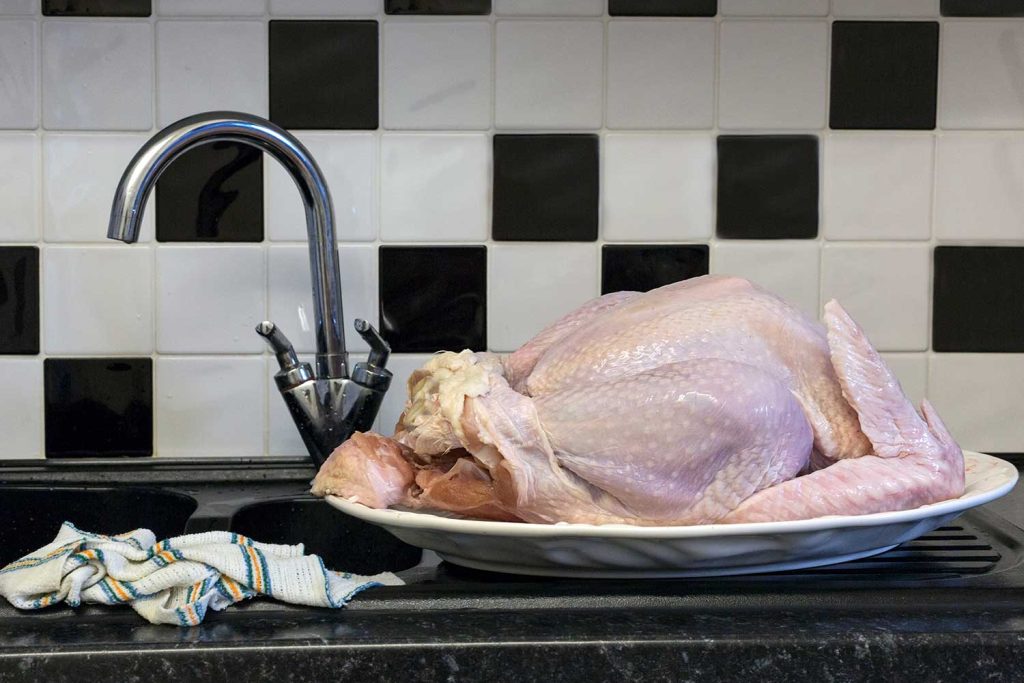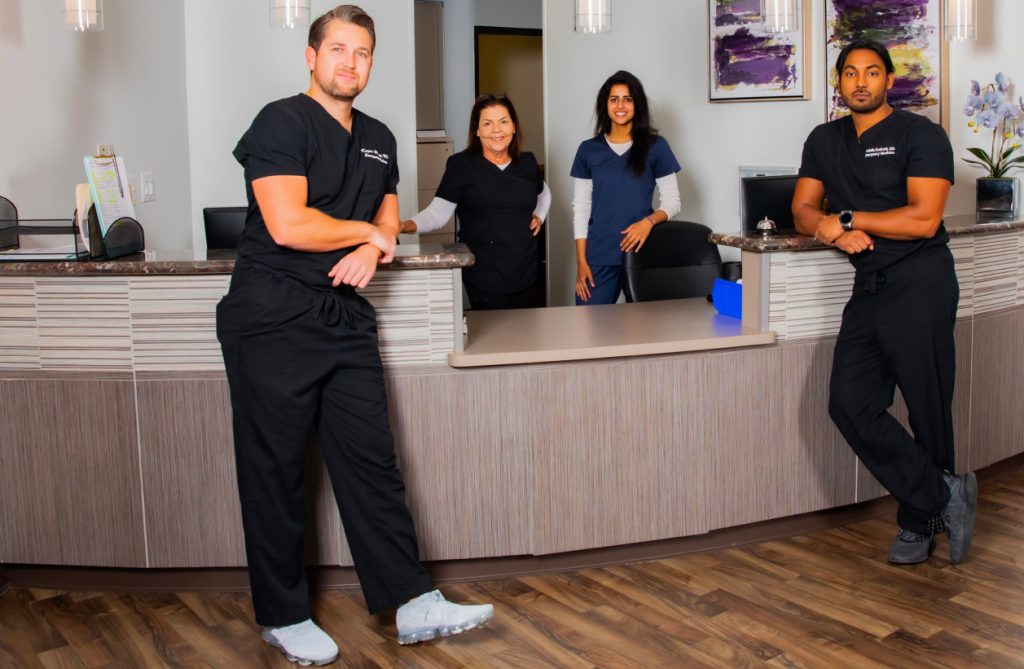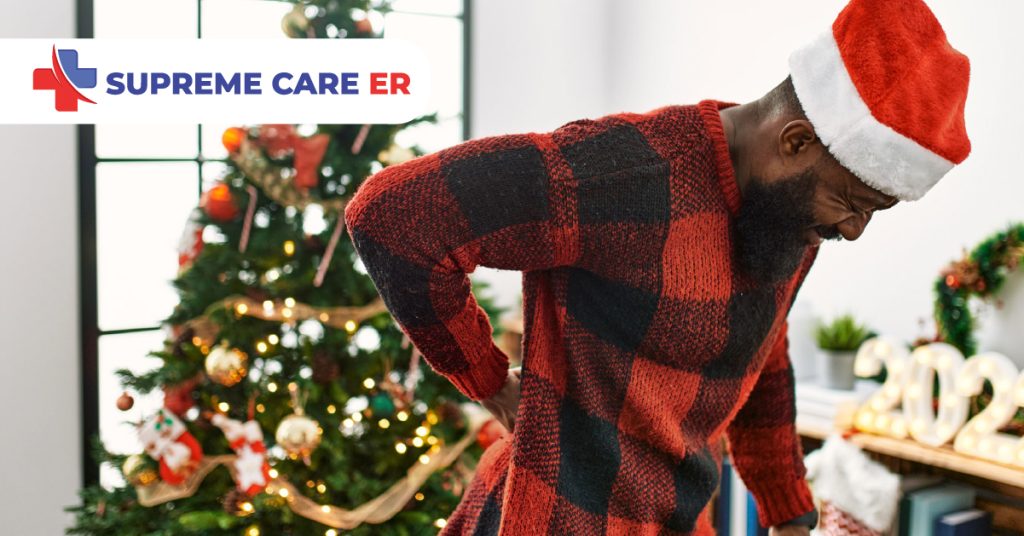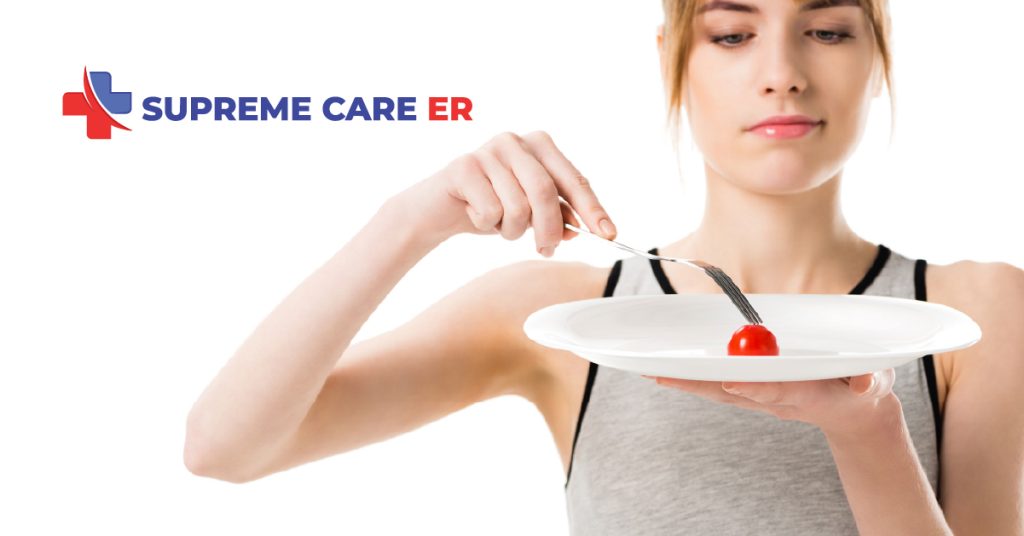Top Thanksgiving Emergencies and How to Prevent Them
Thanksgiving is the official start of the Holiday Season. A festive time when we gather with our loved ones and eat to our heart’s content. But this celebration is also a busy time for us at the ER; however, just a bit of planning goes a long way in preventing accidents and stressful trips to the emergency room.
At Supreme Care ER in Houston, the finest emergency room in Cypress Texas, we’re happy to provide you with the emergency care that you need in the event of a medical emergency.
Top Thanksgiving Emergencies
Here are some of the most common reasons people end up spending their thanksgiving at our ER.
Food Poisoning
Thanksgiving is all about food, so it’s no surprise that food poisoning is at the top of the list of reasons why many Americans end up in the ER during this time of year.
Food poisoning is often the result of poor handling, cooking turkey and other foods, and storing leftovers which can lead to bacterial infections.

Ways to Prevent Food Poisoning
Thawing in the Refrigerator
- Keep your turkey frozen until you are ready to thaw it
- If possible, thaw your turkey in the refrigerator. Generally, you should allow 24 hours of thawing for every 4-5 pounds of turkey
- Leave the turkey in its original packaging while it defrosts. To prevent juices from spilling and contaminating other foods in your refrigerator, place the frozen turkey in a container big enough to hold it
- Cook your turkey no more than 1-2 days after thawing
Thawing in Cold Water
- Your turkey should be in a leak-proof bag before placing it in the sink. This way, you can prevent the juices from spreading in the kitchen and possibly contaminating your workspace
- Completely cover your turkey with cold tap water, and change the water every 30 minutes
- Calculate 30 minutes of thawing for each pound of turkey
- Cook your turkey immediately after thawing is complete
Please never thaw your turkey by leaving it on the counter. Germs can rapidly reproduce after only two hours at room temperature, even if the core of the turkey is still frozen.

Safe Handling of Your Turkey
- Wash your hands with soap and water before you handle any foods
- Use separate cutting boards. One for your raw turkey, another for produce, bread, and other foods
- Resist the urge to rinse your turkey. Doing so can spread germs around your kitchen. Instead, pat dry your turkey with paper towels and immediately discard them
- Wash kitchen utensils, plates, and cutting boards in hot soapy water after preparing the turkey and before you start preparing side dishes

Cook Turkey to a Safe Temperature
Undercooked turkey can be dangerous. To safely cook your turkey, remember the following:
- Set your oven temperature to a minimum of 325°F
- Place turkey in a roasting pan that is at least 2 to 2.5 inches deep
- Insert a food thermometer into three places (the thickest part of the breast, the thigh, and where the body meets the wing). Internal temperature needs to be 165°F
- If you stuffed your turkey, also insert the food thermometer into the center of the stuffing to ensure it reaches 165°F
- Consider cooking your filling in a dish rather than inside the turkey. Doing so makes it easier to ensure the stuffing is thoroughly cooked

Storing Leftovers
- Refrigerate leftovers in the fridge within two hours of having cooked the food
- Portion big cuts of meat, so they cool faster once refrigerated
- Eat your leftovers within 3-4 days or freeze them to store them for longer
- Reheat leftovers to 165°F before eating them

Knife Injuries
Preparing large holiday meals is stressful, no matter how experienced you are in the kitchen. Working under pressure and time constraints with sharp utensils can easily lead to accidents. To help prevent cuts and lacerations, try the following:
- Take your time while cutting and prepping your food
- Don’t leave sharp knives on the edge of counters or the table as they could cut someone should they fall to the floor
- Always use a cutting board when dicing produce
- If your children are helping you, always supervise their activities in the kitchen
- Don’t rush when carving the turkey

Burns
Holiday cooking often means you are trying to cook multiple dishes at once. Unfortunately, trying to do too many things at once can make it easy to bump into other people in the kitchen and knock over hot pans. These tips can help you prevent severe burns in the kitchen

- Always place pot handles facing inwards to prevent bumping into them
- Never leave food in the oven or stovetop unattended
- Never throw water onto a grease fire because it can cause the flames to spread
- Do not open the door if there is a fire inside your oven. Instead, turn off the oven
- Take necessary precautions if you are deep frying your turkey. For instance, make sure the bird is fully thawed
- Never attempt to deep fry a turkey indoors. Choose a cleared, contained space outdoors and lower the bird into the hot oil from a safe distance.

Where to go in Case of an Emergency?
It’s vital to keep a list of hospitals and ER centers near your home in case you suffer a medical emergency.
Call 911 if anyone in your family sustains a life-threatening injury.
At Supreme Care ER, our doors remain open to provide care for you and your family.









